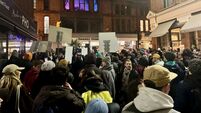Report warns of workplace racism
A Filipino worker was tied to a chair by a racist colleague in the North while another was locked in a freezer, a community representative has claimed.
The allegations emerged as new research found almost half of Filipinos living in the North say they have experienced racial harassment in the workplace.













